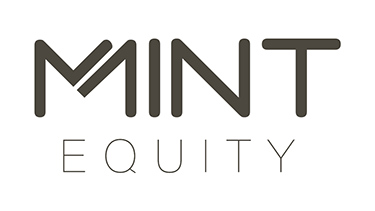In Australia, the Higher Education Contribution Scheme (HECS), now commonly known as the Higher Education Loan Program (HELP), is a government loan program that enables students to defer the cost of their tertiary education. While this system alleviates the immediate financial burden of tuition fees, its long-term effects on financial decisions, such as obtaining a mortgage, particularly for first home buyers can be significant. Understanding how HECS debt influences borrowing capacity is crucial for potential homeowners who have or are currently repaying this type of debt.
Understanding HECS / HELP debt
HECS-HELP is a loan scheme for eligible students enrolled in Commonwealth-supported places to pay their student contribution amounts. What makes HECS debt unique is its interest-free nature; it is instead indexed annually to the Consumer Price Index (CPI) to maintain its real value. Repayments commence once an individual’s income reaches a certain threshold, which for the 2023-2024 financial year starts at $48,361. The repayment rate increases progressively with income.
“Mint Equity can run through hypothetical scenarios to see how keeping or paying out your HECS-HELP debt affects your borrowing capacity and ability to buy a property.”
HECS debt and its impact on home loan applications and borrowing capacity
Credit score
Contrary to common misconceptions, HECS debt does not directly affect an individual’s credit score. Credit scores in Australia are primarily influenced by factors such as credit card limits, loan applications, and repayment history on credit commitments. However, where HECS debt becomes critical is in the assessment of an individual’s borrowing capacity when applying for a mortgage.
Borrowing capacity
When assessing a loan application, lenders consider an applicant’s total income and subtract mandatory expenses and existing liabilities to determine their remaining income, which can be used to service new debt. HECS debt reduces this available income because it is a compulsory repayment once the individual earns above the threshold. This reduction in disposable income directly impacts how much the lender perceives you can afford to repay, effectively reducing your borrowing capacity.
For example, if someone earns $70,000 annually, their HECS repayment rate would be 3% of their income, equating to an annual commitment of $2,100. When applying for a mortgage, lenders factor in this commitment as an ongoing liability, much like how they would treat personal loans or credit card debts, which decreases the amount you can borrow.
Is it better to pay out the HECS debt before applying for a mortgage?
If only it was that simple. It really depends on how much money you have saved for your home deposit and how much is remaining on your HECS-HELP debt. Every borrower’s situation is unique, and the wrong decision could reduce or remove your ability to buy a property if you pay out your student loan.
So, before you do anything, talk to the home loan lending specialists at Mint Equity and we can run through hypothetical scenarios to see how keeping or paying out your HECS-HELP debt affects your ability to buy a property.
Recent CPI Figures and Their Impact on HECS-HELP Debt
The relationship between the Consumer Price Index (CPI) and HECS-HELP debt is an integral aspect of understanding how student loans evolve over time in Australia. Each year, the indexation rate applied to HECS-HELP debts adjusts in line with the CPI, effectively altering the total amount owed by students and graduates. This indexation ensures that the value of the money borrowed keeps pace with inflation, thereby maintaining its real value over the years.
Understanding the 2024 HECS-HELP indexation rate
For 2024, the expected indexation rate for HECS-HELP debts is set at 4.7%. This figure is derived from the most recent CPI figures and assumes that the calculation method remains consistent with the previous year. This rate is a decrease compared to last year’s indexation of 7.1% but is significantly higher than the 0.6% seen in 2021. Such fluctuations are reflective of the changes in the economic environment, particularly inflation rates.
This means that even if you make repayments on your HECS-HELP debt, the total loan amount will increase by the indexation percentage.
For example, if your student loan balance in June 2024 was $25,000, the loan balance will be increased by 4.7% from 1 July 2024, adding an extra $1,175 to the loan balance, totalling $26,175.
Whilst it is upsetting to see your loan balance increase instead of decrease, the actual repayments of HECS-HELP are interest free.
HECS indexation over the years, expressed as a percentage
Long-term considerations when preparing to secure a home loans
Potential homeowners should be aware of these implications and plan accordingly. It is advisable for individuals with HECS debt to:
Increase Savings: Building a larger deposit can offset the reduced borrowing capacity.
Reduce Other Debts: Lowering credit card limits and paying off other loans can improve your debt to income ratio
Consider additional income: Part-time jobs or passive income streams can help you pay existing debt off quicker.
Financial planning and consultation with experienced mortgage brokers like Mint Equity can also provide tailored strategies to manage HECS debt effectively while pursuing homeownership.
HECS-HELP debt is a unique financial obligation that plays a significant role in shaping future financial opportunities and decisions. While it does not affect credit scores directly, its impact on mortgage borrowing capacity is undeniable. Prospective home buyers with HECS-HELP debt must consider this impact in their financial planning to ensure they can successfully manage their mortgage commitments alongside their educational repayments.


